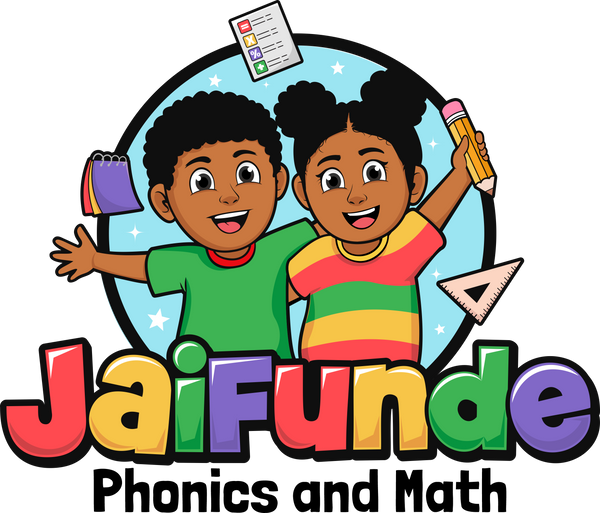Since launching Jaifunde Education Consulting & Resources service in 2023, I’ve witnessed an array of job postings for teacher roles and curriculum developers, most requiring certifications or even a PhD. While I believe in the value of credentialing for positions that directly impact children, I’m increasingly concerned that these requirements are blocking out something essential—parental insight and the collective wisdom of non-certified caring adults. As a result, children are primarily learning from the structured pedagogical perspectives of professional educators and academics, while missing out on the real-world knowledge and instincts that can shape and enrich their education.
If there’s anything I’ve learned from my 20 years of teaching, tutoring, and parenting, it’s that educational strategies and curriculum development should come as much from the wisdom of our communities as from evidence-based pedagogies.
Non-Certified Caring Adults: A Forgotten Resource
In countless conversations about child development, whether in St. Louis or among diverse circles of activists, visionaries, and creators, I have encountered the same undercurrent: the power of grassroots wisdom. This knowledge often comes from people who have grown frustrated with slow-moving systems and who have decided to build their own solutions—whether through independent schools, educational equity conferences, or African-centered math pedagogy that bridges achievement gaps among African American students.
From them, I’ve learned invaluable lessons about how to effectively nurture young minds. For example, children need to make sense of their world before academic content can ever be meaningful. It’s not enough to ask a child to start counting using numbers in a textbook. Instead, take them outside to count leaves, stairs, rocks—or robins flying by. Talk about real-life concepts: explain why grandpa is 85 years old while their newborn cousin is only 3 months old. Teach them how phone numbers encode entire towns, or why the sun shines longer in summer by taking them on a nature walk. These everyday interactions serve as a child’s first teacher and build the foundation for deeper learning.
One dear elder in my community, Kelly Wimbley, who founded an Afrocentric microschool, shared this: “Growing up in East St. Louis, I didn’t need to check the weather to know it was going to rain. I could smell it coming. I didn’t have to look for a cloud in the sky. I was in touch with my other senses. Once you learn your senses, you start to see and understand patterns.”
Yet, many schools abandon this wisdom and ask children to disengage from the natural world in favor of abstract learning. In schools that excel, however, community wisdom is valued. These are the schools with active PTOs, grandparent involvement, and robust mentorship programs that connect students to mentors and caring adults in the real world.
Why Are Schools Struggling to Engage Children?
Despite new learning standards, such as the Common Core, schools across the country continue to struggle with engagement. Why? Because the assumption that a certified teacher plus content equals connection is flawed. Content alone doesn’t create meaningful learning experiences. A certified teacher may be well-versed in theory but may lack the flexibility to make lessons relevant to a child’s real life. What children truly crave is a teacher who can tailor lessons on the spot, sense when foundational concepts need to be re-taught, and break down complex ideas into bite-sized, relatable pieces of knowledge.
Some of the most influential educators I’ve encountered aren’t the classroom teachers, but the lunch lady who dishes out life advice, the janitor who cracks the best jokes in his raspy voice, the secretary who discerns what you need by the look on your face, or the PreK teacher who turns every child's name into a song when spoken. These caring adults bring to work their lived experiences, allowing them to nurture students effectively, and sometimes more positively than certified educators.
I've Seen Firsthand the Limits of Autopilot Education
During my time tutoring in the U.S. and Africa, I’ve seen firsthand how rigid academic structures can limit students. For instance, I tutored a brilliant 14-year-old Black boy whose mother believed he struggled with writing. However, when I asked him what he truly wanted to do, he shared his dream of launching a million-dollar entertainment firm. Rather than writing his required report on English literature topic X, I asked him to write a business pitch for investors. Fifteen minutes later, I held in my hands one of the most compelling, well-written pitches I had ever read—a positivity-driven firm designed to empower children. His writing ability wasn’t the issue; the problem was that no one had tapped into his passion. This highlights the importance of allowing educators to go beyond the script and address students’ unique needs and interests.
In another instance, I worked with a high school basketball player—a Black student at a predominantly white private school. Though excelling in sports, he was coasting academically. When we spoke about his assignments, he softly admitted, “It’s not that I don’t know how to do the work. I just don’t like the racism. My teachers don’t even look me in the eyes.” His brilliance was being eclipsed by the prejudice he encountered, a reality overlooked by many certified teachers.
Redefining What Makes a Good Teacher
We need to rethink our definition of a good teacher. Certifications alone are not the indicator. What matters is whether an educator has a track record of empowering children from all backgrounds, identifying gaps in their foundational knowledge, and providing guidance even without traditional materials or resources - all things that good parents do daily. Real teaching happens when you have to create lessons on the fly, mentor students without expecting anything in return, and draw from your own lived experiences to make learning relatable and meaningful.
Schools today are ecosystems that often serve as extended families for children. It’s time we elevate the skills of all individuals—parents, community elders, and others—who are also capable and committed to nurturing young people’s development. Let's activate the vast unsung wisdom, life experience, and intuitive understanding that can transform education. By integrating non-certified voices and skills into curriculum design, we can create a more effective, holistic, and engaging learning environment for all children.

